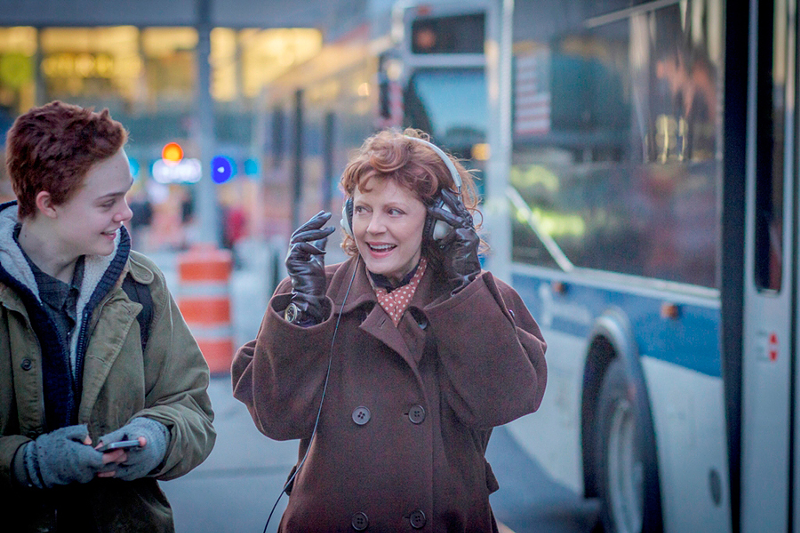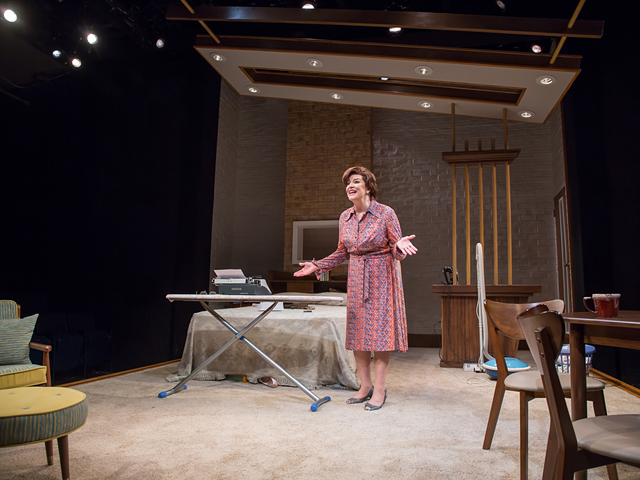We have overcome elitist considerations about where we watch movies — from the big screens of theaters to the small screens, which used to refer to televisions but now include computers, tablets and smartphones — and can instead center the discussion on movies’ narratives rather than their origins.
Yet, an old-head critic like yours truly slips up occasionally, falling back on such casual categorical tropes as offhandedly comparing a feature film to a TV movie — which is exactly what I’m about to do with director Gaby Dellal’s new release 3 Generations. Dellal co-wrote the script with Nikole Beckwith, and it is worth noting that Beckwith’s upcoming writing credit happens to be the television adaptation/remake of Beaches, while the London-born Dellal has a history directing shorts (Toy Boys and Football) as well as episodes of the British television drama series Leaving.
Certainly we can appreciate the fact that contemporary production values and the availability of A-list talent for serialized work on premium cable and streaming formats means that “film” and “television” distinctions have far less to do with the aesthetics of storytelling, but I would argue that we still recognize a “TV movie” when we see one.
I caught 3 Generations back in September at the Toronto International Film Festival, when it was still titled About Ray. It’s about a young adult named Ray (Elle Fanning) seeking to transition from female to male despite awkward protests from her gay grandmother (Susan Sarandon) and ineffective assistance from her aimless mother (Naomi Watts). Eventually Ray embarks on a journey to track down her biological father (Tate Donovan) to get his legal consent.
Set in the cinematic cultural melting pot that is New York City, the film exists against the abrasively edgy backdrop of an urban community that wears its vintage identity badges with honor, although you could argue that not everyone is as progressive as they believe they are. Take, for instance, Ray’s grandma Dolly (Sarandon), a lesbian with a long-time lover (Linda Emond) who can’t quite come to grips with Ray’s decision to undergo gender reassignment. “Why not just be a lesbian?” Dolly constantly asks.
But Dellal makes sure that Dolly delivers these queries with wit and tenderness, with perfect sitcom timing (minus the laugh track). We’re supposed to get that Dolly is old but still hip. Adding to the sitcom feel is the conceit that Ray and her mother Maggie live with Dolly in a multi-level brownstone that is, of course, straight out of an upscale magazine from the late ’90s.
The saving grace of 3 Generations is Fanning. The title change, just prior to the film’s release, centers as much on the spot-on casting of Sarandon, Watts and Fanning as it does the idea that there is a real generational shift on display when it comes to issues of sexual and gender identity. You’ve got an Academy Award-winner in Sarandon (who downplays the broad “television” strokes like the pro that she is) and an Oscar-nominee in Watts (working nicely without succumbing to hysterics in every scene). But the real star turn comes from Fanning. She plays someone whose gawky teen limbs cover an emerging swan-like grace lurking just beneath the surface.
Here, that awkwardness aligns with the notion of Ray struggling in the wrong body. It is fascinating to watch Fanning as she moves, always conscious of Ray’s hunched-over stride or the gangly way Ray can’t quite figure out how to cross her legs when seated. The best way to appreciate the performance might be to ignore all of the talk — the politically correct efforts to treat Ray with respect, the mother-daughter bickering between Dolly and Maggie and even the staid white-male intrusions of Ray’s father into the process later on — and just focus on the physicality of Fanning.
We all seek some sense of acceptance, coming first from within, and maybe the same is true for a film like 3 Generations. It might look and feel like a “TV movie,” but Fanning wills it toward something richer and more nuanced — something that matters. (Opens Friday at the Esquire Theatre.) (PG-13) Grade: B-






